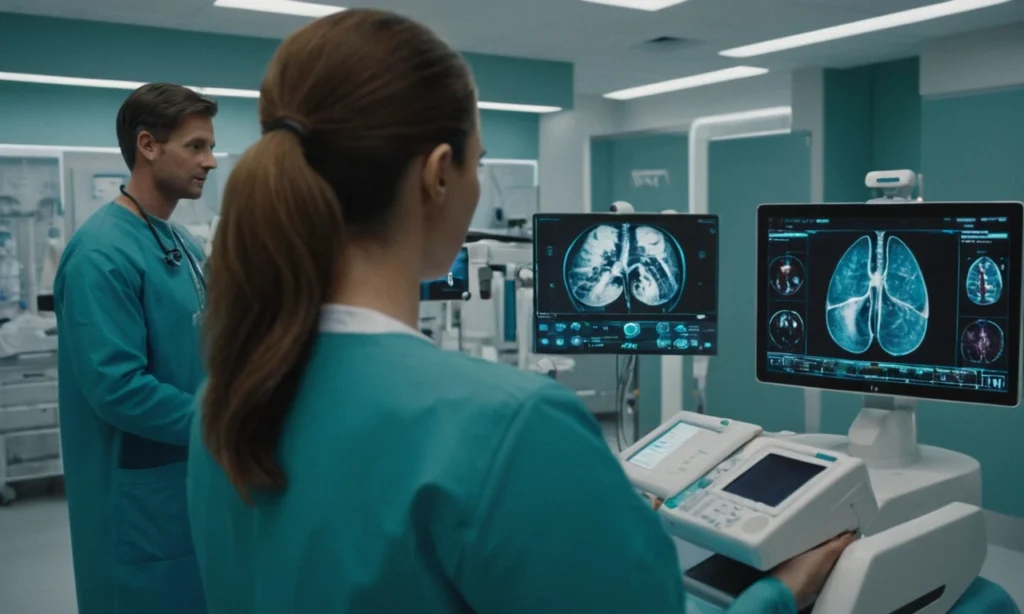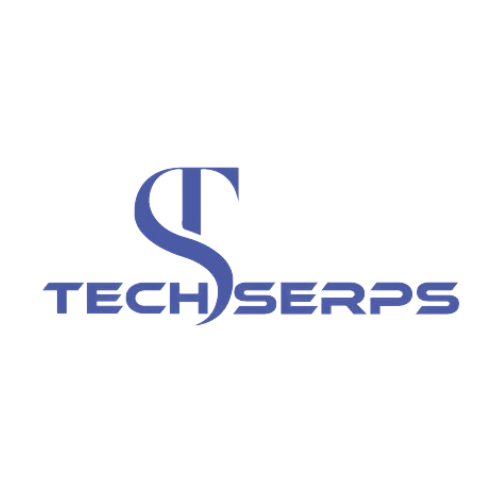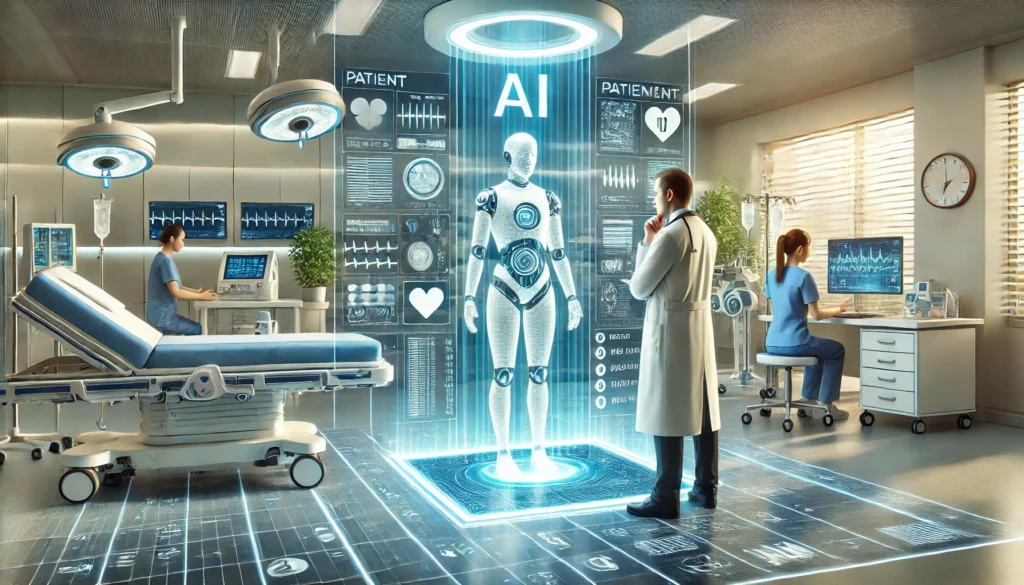Introduction
In recent years, artificial intelligence (AI) has emerged as a transformative force in the healthcare industry. AI in healthcare companies is driving significant advancements in patient care, operational efficiency, and medical innovation. From early disease detection to personalized treatments, AI is reshaping the way healthcare providers approach challenges, making services more accessible, efficient, and precise. This article delves into how AI is revolutionizing the healthcare sector and highlights some of the leading companies at the forefront of this innovation.
Understanding AI in Healthcare
What Is AI in Healthcare?
AI in healthcare refers to the use of machine learning algorithms, data analytics, and intelligent systems to assist healthcare providers in diagnosis, treatment, and management of patient care. It encompasses a range of applications, including predictive analytics, medical imaging, and virtual health assistants.
By mimicking human cognitive functions, AI systems process vast amounts of medical data, identify patterns, and make informed decisions faster than traditional methods. For example, AI-powered tools can scan thousands of medical images to detect anomalies that might go unnoticed by the human eye.
Why Is AI Important for Healthcare?
The complexity and volume of medical data have outpaced traditional methods of analysis. AI offers tools to:
- Analyze vast datasets quickly and accurately.
- Detect diseases at early stages.
- Personalize treatment plans based on individual patient data.
- Enhance operational efficiency in hospitals and clinics.
Moreover, AI helps bridge the gap in healthcare access in underserved areas. Telemedicine platforms powered by AI bring quality care to remote regions, enabling consultations and diagnostics without the need for physical presence.
How AI in Healthcare Companies Is Transforming Patient Care

Early Disease Detection and Diagnosis
AI algorithms excel at analyzing medical images such as X-rays, MRIs, and CT scans. For instance, companies like Aidoc and Zebra Medical Vision leverage AI to identify abnormalities such as tumors or fractures. This capability significantly reduces diagnostic errors and ensures patients receive timely interventions.
In addition to imaging, AI systems are also being used to analyze patient histories, genetic data, and lab results. Tools like Google’s DeepMind Health have demonstrated remarkable accuracy in predicting acute kidney injuries and eye diseases, often outperforming human specialists.
Personalized Treatment Plans
Traditional medicine often follows a one-size-fits-all approach. AI in healthcare companies, such as Tempus, is disrupting this model by offering personalized treatment plans. By analyzing a combination of a patient’s genetic information, lifestyle choices, and medical history, these AI tools recommend treatments tailored to the individual. This approach minimizes adverse reactions and maximizes treatment effectiveness.
For instance, in oncology, AI tools identify specific mutations in cancer cells and suggest targeted therapies. Such precision medicine not only improves patient outcomes but also reduces unnecessary medical expenses.
Virtual Health Assistants
Virtual health assistants powered by AI are changing the way patients interact with healthcare systems. AI in healthcare companies like Babylon Health and Ada Health have developed AI chatbots capable of answering medical queries, scheduling appointments, and even providing preliminary diagnoses based on symptoms.
These assistants are particularly useful for patients managing chronic conditions. For example, virtual assistants can send reminders for medication, monitor vital signs, and provide lifestyle advice, empowering patients to take control of their health.
Predictive Analytics for Healthcare Management
Predictive analytics uses AI to forecast potential health events and optimize healthcare operations. Tools developed by companies like Health Catalyst analyze patient data to predict hospital admissions, disease outbreaks, and treatment success rates. This proactive approach allows healthcare providers to allocate resources more effectively, ensuring patients receive timely care.
In hospitals, predictive analytics can streamline operations by optimizing staff schedules, managing inventory, and reducing patient wait times. For instance, AI can predict peak admission periods and adjust staffing levels accordingly.
Top AI in Healthcare Companies Leading the Revolution
1. IBM Watson Health
IBM Watson Health is a pioneer in AI-driven healthcare solutions. Its advanced tools provide insights for oncology, genomics, and clinical trials. By analyzing structured and unstructured medical data, Watson Health supports doctors in making informed decisions.
Key Contributions:
- Oncology insights to recommend treatment options.
- AI-powered clinical trial matching for patients.
- Integration with electronic health records for streamlined workflows.
2. Google Health
Google Health utilizes machine learning to improve medical imaging and manage electronic health records (EHR). Its AI algorithms excel at detecting diseases like diabetic retinopathy and breast cancer.
Key Contributions:
- AI models for early disease detection.
- Collaboration with healthcare institutions for research and development.
- User-friendly tools for EHR management.
3. Tempus
Tempus specializes in precision medicine by combining genomic sequencing with AI analysis. Its tools help oncologists design targeted treatments based on the molecular profile of a patient’s tumor.
Key Contributions:
- Advanced genomic sequencing for oncology and neurology.
- AI platforms for analyzing clinical and molecular data.
- Partnerships with leading cancer centers worldwide.
4. Aidoc
Aidoc develops AI solutions for radiologists, enabling faster and more accurate interpretation of medical images. Its algorithms detect life-threatening conditions such as intracranial hemorrhages and pulmonary embolisms.
Key Contributions:
- Real-time anomaly detection in radiology scans.
- Streamlined workflows for radiology departments.
- Applications in emergency and inpatient settings.
5. Babylon Health
Babylon Health combines AI with telemedicine to provide virtual healthcare services. Its AI-based symptom checker evaluates user inputs and offers insights on potential health issues.
Key Contributions:
- Virtual consultations with healthcare professionals.
- AI-driven health monitoring tools.
- Cost-effective solutions for primary care.
Challenges and Ethical Considerations in AI Healthcare

Data Privacy and Security
AI systems handle sensitive patient data, making data privacy a top priority. Healthcare companies must comply with regulations such as HIPAA and GDPR to protect patient information. Encryption, secure storage, and robust access controls are essential to maintaining trust.
Algorithm Bias
AI algorithms are only as good as the data they are trained on. Bias in training datasets can lead to unequal treatment outcomes. For example, underrepresentation of certain demographics in training data may result in less accurate predictions for those groups. Companies must ensure diversity in their datasets and regularly audit their algorithms.
Implementation Costs
The cost of integrating AI systems can be prohibitive for smaller healthcare providers. While larger hospitals and research centers benefit from economies of scale, smaller institutions may struggle to justify the investment. Developing cost-effective solutions is crucial for widespread adoption.
The Future of AI in Healthcare

The potential for AI in healthcare is vast, and future developments promise even greater impact:
- Predictive Health Monitoring: Wearable devices powered by AI will monitor vital signs in real time, alerting patients and doctors to potential health issues before they escalate.
- Robotic Surgeries: AI-assisted robotic systems will enhance precision and reduce recovery times, particularly in complex procedures like neurosurgery.
- Global Health Solutions: AI tools will address healthcare disparities by providing affordable diagnostic tools to underserved regions. Multilingual AI platforms will bridge language barriers, ensuring accessibility for diverse populations.
- AI-Driven Drug Discovery: AI is already accelerating drug discovery by identifying promising compounds and predicting their efficacy. This will drastically reduce the time and cost of bringing new medications to market.
Conclusion
AI in healthcare companies is not just a technological upgrade; it is a revolutionary force driving patient care and medical innovation. From precision diagnostics and personalized treatment plans to operational efficiency and cost reduction, the impact of AI is reshaping the healthcare landscape. As these technologies advance, the potential for AI to unlock unprecedented breakthroughs grows exponentially, empowering healthcare providers to deliver better outcomes for patients.
By leveraging AI-driven tools, healthcare companies can address critical challenges like early disease detection, seamless data management, and tailored patient care. As we look to the future, the integration of AI promises to bridge gaps in global healthcare, making services more accessible, equitable, and effective.
This transformative journey signifies not just the enhancement of healthcare practices but also the dawn of a smarter, more connected ecosystem. For companies aiming to stay competitive and relevant, investing in AI-driven healthcare solutions is no longer optional—it is imperative.
FAQs
1. What are the benefits of AI in healthcare companies?
AI improves early disease detection, personalizes treatments, enhances operational efficiency, and reduces medical errors. It also supports better resource allocation and streamlines hospital workflows.
2. Which companies are leading in AI healthcare innovation?
Top companies include IBM Watson Health, Google Health, Tempus, Aidoc, and Babylon Health. These organizations are at the forefront of applying AI to improve patient care and operational efficiency.
3. How does AI help in early disease detection?
AI analyzes medical images, patient histories, and genetic data to identify diseases like cancer and heart conditions at early stages. This enables timely interventions and better patient outcomes.
4. What challenges do AI healthcare companies face?
Challenges include data privacy concerns, algorithm biases, high implementation costs, and the need for regulatory compliance. Addressing these issues is key to successful AI adoption.
5. What is the future of AI in healthcare?
The future includes advancements in predictive health monitoring, AI-assisted surgeries, global health solutions, and accelerated drug discovery. AI will continue to revolutionize healthcare, making it more accessible and efficient.



